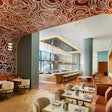
Planners and other event professionals are closely monitoring court action regarding President Donald Trump's executive order banning travelers from seven predominantly Muslim countries from entering the United States. When Trump signed the order on January 27, it caused concern and confusion for many in an industry that relies on international travel to bring people together face-to-face for meetings, trade shows, conventions, and more.
“The travel ban has raised a lot of eyebrows in the global community of exhibitions and events and trade shows because the whole promise of a trade show is that it brings people together for mutual benefit to trade and to exchange opinions and products,” says Kai Hattendorf, C.E.O. of UFI, the Global Association of the Exhibition Industry, which has 700 member organizations—including SISO, CEIR, and I.A.E.E.—from 80 countries. “For the last 30 plus years, the industry has benefited hugely from globalization, from borders opening up, from trade becoming easier. The growth has been amazing. So to have one of the most important countries in the world when it comes to exhibitions change its policies toward the openness everyone has experienced for a very long time has caused a lot of attention.”
Industry organizations such as the P.C.M.A., A.S.A.E., I.A.E.E., and the Meetings Mean Business coalition released statements expressing concern about the ban. Meetings Mean Business is also conducting an online survey about the ban. Many large conferences and trade shows that traditionally attract an international audience are scheduled in the next several weeks, including the RSA Conference in San Francisco February 13 to 17 and the H.I.M.S.S. Conference and Exhibition in Orlando February 19 to 23. Both attract about 45,000 people from around the world, but neither responded to our request for comment.
UFI will convene more than 100 executives from event companies and venues around the world for its Global C.E.O. Summit in Barcelona Wednesday through Friday. Hattendorf says he expects the ban will be a hot topic, both from the perspective of United States-based organizers that are concerned about international attendees’ ability to come to their events, as well as for internationally based events concerned that United States-based attendees with passports from one of the seven countries may not feel comfortable leaving this country. For exhibitors in particular, this uncertainty is unwelcome.
“According to our data, from a total marketing budget of a small- or medium-size company, around 40 percent of total marketing spend goes to trade shows and exhibitions. It’s a damn big investment,” Hattendorf says. “So what they are looking for is security when it comes to the quality of the show and reliability. What we are seeing now is an erosion of that feeling of an investment into a show being a secure investment if the quality of the marketplace that the show delivers becomes questionable.”
In fact, even before the ban, respondents to UFI’s most recent Global Barometer survey expressed concerns about the impact of recent political developments around the world—including the Brexit vote in the United Kingdom, the failed coup in Turkey, and the United States presidential election—on the international exhibition industry. The survey was conducted in December through mid-January with responses from 240 companies in 54 countries.
“The reply we got was kind of telling on that question,” Hattendorf says. “This is an industry that is usually optimistic about its future. So to have this industry report that 45 percent of all those companies that participated in the survey say they expect a somewhat negative or significantly negative development from recent political developments is quite a strong statement to a degree as we rarely see it.”



















!['The Cathedral of St. John the Divine [in New York] is such a striking hidden gem and one of my favorite event venues in the city,' says Tinsel Experiential Design's Erica Taylor Haskins.](https://img.bizbash.com/files/base/bizbash/bzb/image/2024/09/_M627287_pano.66db3413ac491.png?auto=format%2Ccompress&fit=crop&h=112&q=70&w=112)